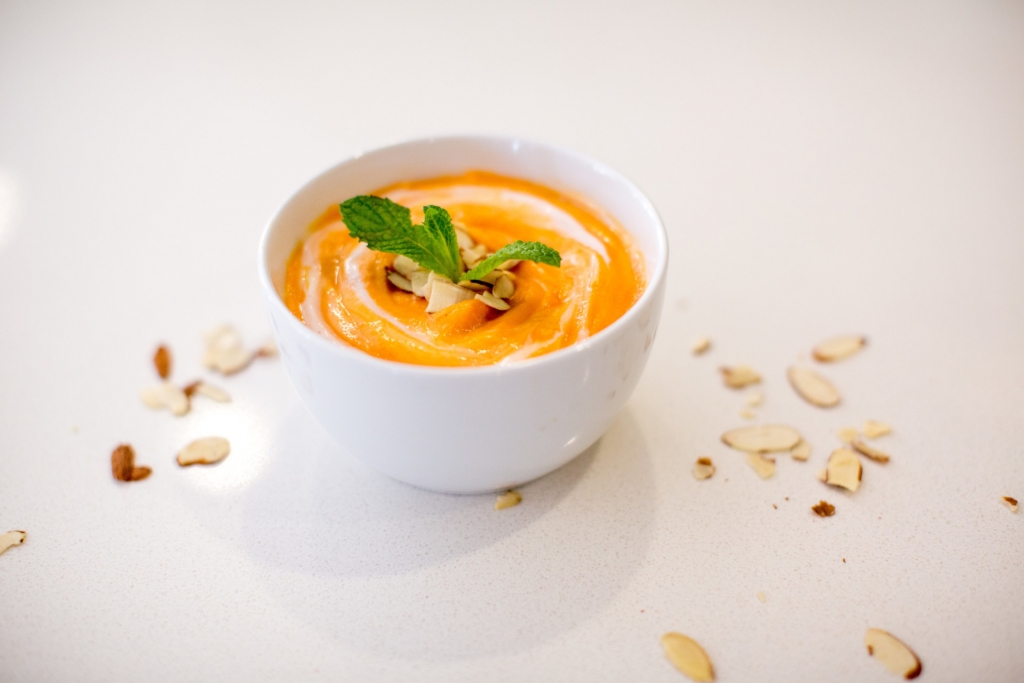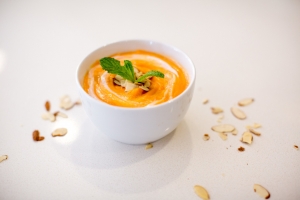Probiotics are all the rage right now. More and more research is finding that probiotics (the beneficial bacteria in our gut) play a major role in the body beyond just aiding in digestion. They have even been shown to have a role connected to the immune system and in the brain for mood regulation. As more research becomes available, it is evident that we still have a lot to learn, but there is no doubt that probiotics do some serious good! What does the current research say about probiotics in the role of diabetes management and improvement? Let’s take a look…
One study found that daily consumption of a probiotic shake with L. acidophilus and Bifidobacterium bifidum (two strains of bacteria) resulted in reduction of fasting blood glucose levels among those with type 2 diabetes. After 6 weeks, fasting blood glucose and HbA1C levels were significantly reduced. (1) That’s good news if you ask me. In a world where we are often told what not to eat, it’s nice to focus on what to add to our meals to get the most health benefits.
Probiotics have also shown promise for improving insulin sensitivity, which is also incredibly helpful in managing our blood sugar levels. A study found that those who took probiotic capsules of L. acidophilus for 4 weeks had preserved insulin sensitivity. The results were found in those with and without diabetes, so there may be benefit from probiotics on insulin sensitivity even in those who do not have diabetes. (1)
And in a meta-analysis that looked at eleven different clinical trials and a total of 614 subjects, it was found that there were significant differences in fasting blood glucose levels and Hemoglobin A1C between those receiving probiotic supplementation (either from a pill or from food), and those who received a placebo. There was not a conclusive significant difference in insulin levels among the subjects in all the studies, so the jury is still out on whether certain types of probiotic strains can improve insulin levels (2). However, other markers of diabetes (like fasting blood glucose and Hemoglobin A1C) do seem to be sensitive to probiotic intake.

So how can you beef up your probiotic intake? Stock up on fermented foods, which are rich in good-for-you bacteria! Here are some of my favorites:
- Kimchi- fermented cabbage (and often other veggies)
- Kefir- drinkable fermented yogurt, which is great on its own or added to smoothies
- Kombucha- a bubbly probiotic tea, perfect for “mocktails”
- Yogurt- look for plain Greek yogurt to keep protein high and sugar low
- Tempeh- fermented soybeans pressed into a cake, similar to tofu. Go for organic, if possible.
If you are looking for additional ways to add probiotics in your eating plan, I also have suggestions in my FREE 7 Day Diabetes Meal Plan
Don’t forget prebiotics, either. Prebiotics are essentially nondigestible components of plant foods that supply fuel to the good bacteria. When the good bacteria are fed, they will flourish even more. Find them in foods like banana, leeks, asparagus, jicama, and dandelion greens.
As the body of research showing probiotic’s effect on insulin and blood sugar grows, it seems like “going with your gut” can be a beneficial way to manage symptoms of diabetes. 😉 Aim to eat some fermented foods everyday and I’d love to hear from you about the benefits you experience.
References
-
Gomes AC, Bueno AA, Graziany R, De Souza M, Mota JF. An upper limit for macromolecular crowding effects. 2011. doi:10.1186/2046-1682-4-13.
-
Sun, J., & Buys, N. J. (2016). Glucose- and glycaemic factor-lowering effects of probiotics on diabetes: A meta-analysis of randomised placebo-controlled trials.The British Journal of Nutrition, 115(7), 1167-1177. doi:http://dx.doi.org/10.1017/S0007114516000076



Leave a Reply